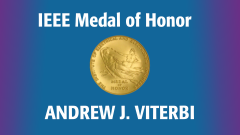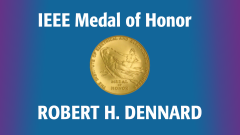Jana Kosecka was born in modern day Slovakia, and received her bachelor’s and master’s degree in electrical engineering and computer science at the Slovak Technical University in Bratislava. Afterwards she came to the United States to continue her studies at the University of Pennsylvania and was affiliated with the General Robotics, Automation, Sensing & Perception Laboratory (GRASP Lab). Originally interested in artificial intelligence, Kosecka became interested in robotics after she attended conference on expert systems. After receiving her doctorate degree, Kosecka received a postdoctoral position at the University of California at Berkeley, where she worked on autonomous driving projects, focusing primarily on vision problems. This led to her working on problems related to imaging the three dimensional structure of the environment, on which she published the textbook An Invitation to 3-D Vision: From Images to Geometric Models with Yi Ma, Stefano Soatto, and S. Shankar Sastry. After staying for three years at a postdoctoral position, Kosecka joined the faculty at George Mason University, where she worked on localization problems, mapping problems, and structure recognition problems in environments with a lot of planar and orthogonal structures. For her work in computer vision, Professor Kosecka received the Marr Prize and a National Science Foundation CAREER Award. In addition, Kosecka has held visiting positions at Stanford University, Google, and Nokia Research and has devoted significant amount of her time on the service work for the IEEE.
In this interview, Kosecka talks about her education, evolution of her research interests, her doctoral dissertation thesis, her time as a postdoctoral researcher, collaboration with different colleagues and students, her involvement with the IEEE Robotics and Automation Society, and women in robotics. In addition, Kosecka gives advice to young people who are interested in a career in robotics.
Jana Kosecka was born in modern day Slovakia, and received her bachelor’s and master’s degree in electrical engineering and computer science at the Slovak Technical University in Bratislava. Afterwards she came to the United States to continue her studies at the University of Pennsylvania and was affiliated with the General Robotics, Automation, Sensing & Perception Laboratory (GRASP Lab). Originally interested in artificial intelligence, Kosecka became interested in robotics after she attended conference on expert systems. After receiving her doctorate degree, Kosecka received a postdoctoral position at the University of California at Berkeley, where she worked on autonomous driving projects, focusing primarily on vision problems. This led to her working on problems related to imaging the three dimensional structure of the environment, on which she published the textbook An Invitation to 3-D Vision: From Images to Geometric Models with Yi Ma, Stefano Soatto, and S. Shankar Sastry. After staying for three years at a postdoctoral position, Kosecka joined the faculty at George Mason University, where she worked on localization problems, mapping problems, and structure recognition problems in environments with a lot of planar and orthogonal structures. For her work in computer vision, Professor Kosecka received the Marr Prize and a National Science Foundation CAREER Award. In addition, Kosecka has held visiting positions at Stanford University, Google, and Nokia Research and has devoted significant amount of her time on the service work for the IEEE.
In this interview, Kosecka talks about her education, evolution of her research interests, her doctoral dissertation thesis, her time as a postdoctoral researcher, collaboration with different colleagues and students, her involvement with the IEEE Robotics and Automation Society, and women in robotics. In addition, Kosecka gives advice to young people who are interested in a career in robotics.
 Cart
Cart Create Account
Create Account Sign In
Sign In





